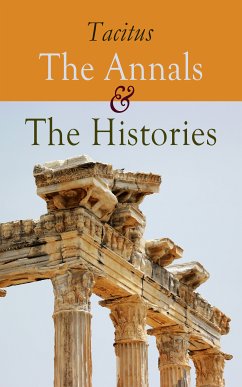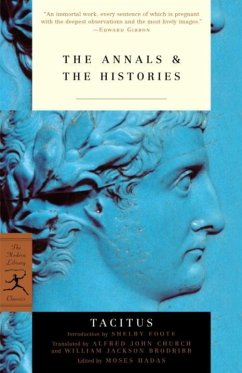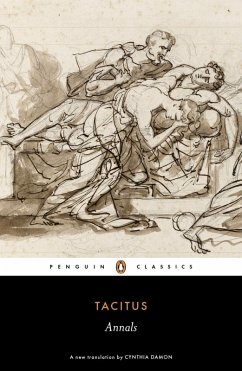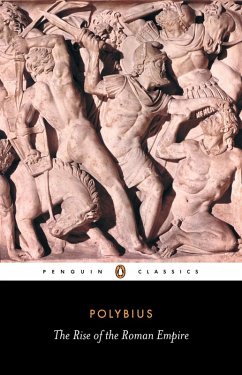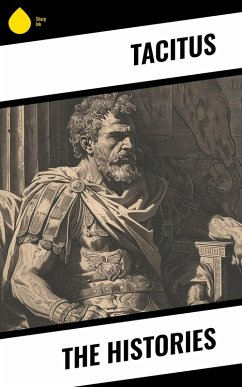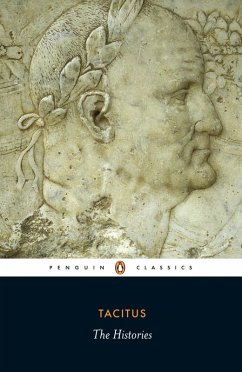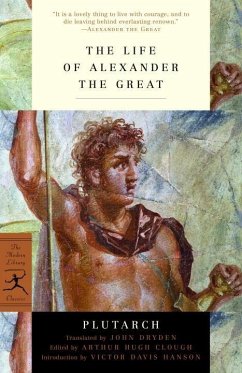
The Annals & The Histories (eBook, ePUB)
2 Classics of Roman History
Übersetzer: Brodribb, William Jackson; Church, Alfred John
Versandkostenfrei!
Sofort per Download lieferbar
1,99 €
inkl. MwSt.
Weitere Ausgaben:

PAYBACK Punkte
0 °P sammeln!
Tacitus' "The Annals & The Histories" stands as a seminal work in Roman historiography, chronicling the tumultuous periods of the Roman Empire and the civil wars that followed the death of Nero. With a keen eye for political nuance, Tacitus employs a prose style characterized by its eloquence and sharp moral depth, weaving together events that highlight the corrupting influence of power and the complexities of human nature. His meticulous attention to detail and psychological insight into figures such as Tiberius and Vespasian allows readers to grasp the intricacies of governance and the fragi...
Tacitus' "The Annals & The Histories" stands as a seminal work in Roman historiography, chronicling the tumultuous periods of the Roman Empire and the civil wars that followed the death of Nero. With a keen eye for political nuance, Tacitus employs a prose style characterized by its eloquence and sharp moral depth, weaving together events that highlight the corrupting influence of power and the complexities of human nature. His meticulous attention to detail and psychological insight into figures such as Tiberius and Vespasian allows readers to grasp the intricacies of governance and the fragility of liberty in times of upheaval. As a senator and a praetor, Tacitus was not merely an observer but a participant in the very political climate he describes, which undeniably shaped his narratives. Living during a time when the Roman Empire was marked by both grandeur and decay, Tacitus sought to understand the lessons of history to warn future generations. His elite background and personal experiences with tyranny and moral decay lend authenticity and urgency to his historical writings, compelling readers to reflect on their contemporary contexts. This book is a must-read for anyone interested in the intricacies of power, the dynamics of history, and the human condition. Tacitus' insights resonate profoundly with modern audiences, and his unwavering examination of human motivations serves as a timeless reminder of history's cyclical nature. Engage with his powerful prose to uncover the lessons embedded within the annals of a civilization that continues to influence our world today.
Dieser Download kann aus rechtlichen Gründen nur mit Rechnungsadresse in A, B, BG, CY, CZ, D, DK, EW, E, FIN, F, GR, H, IRL, I, LT, L, LR, M, NL, PL, P, R, S, SLO, SK ausgeliefert werden.




